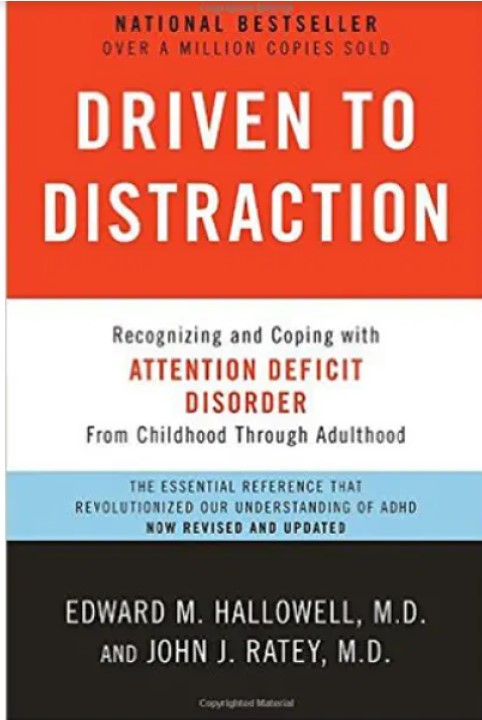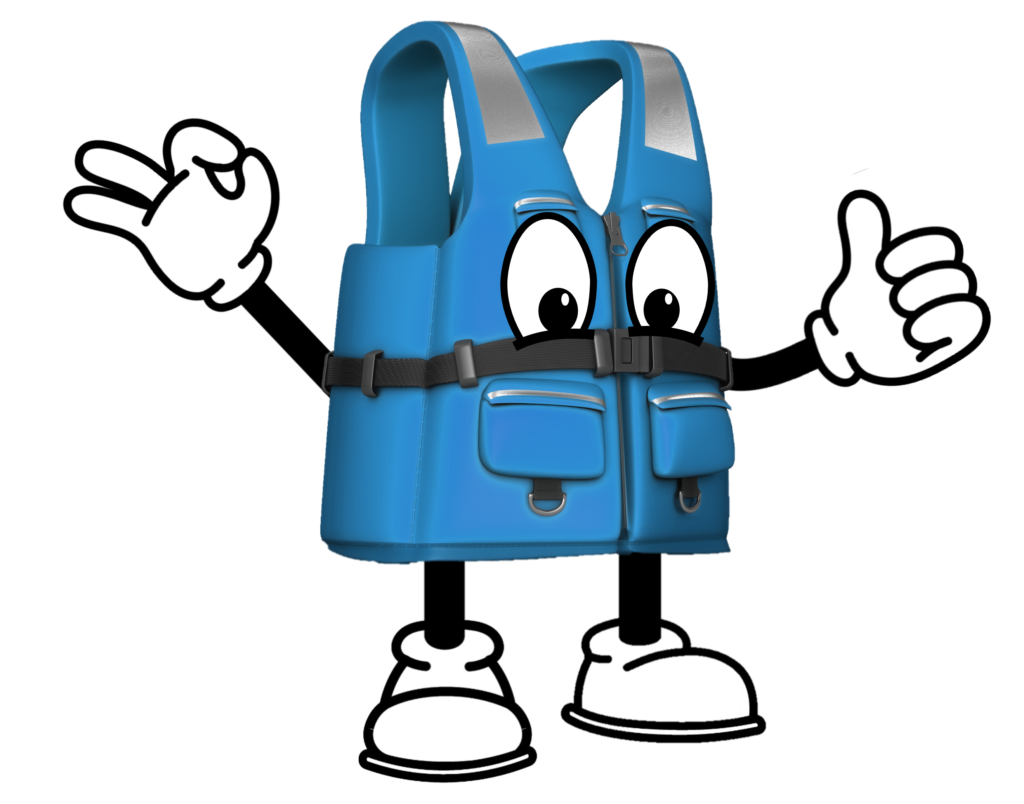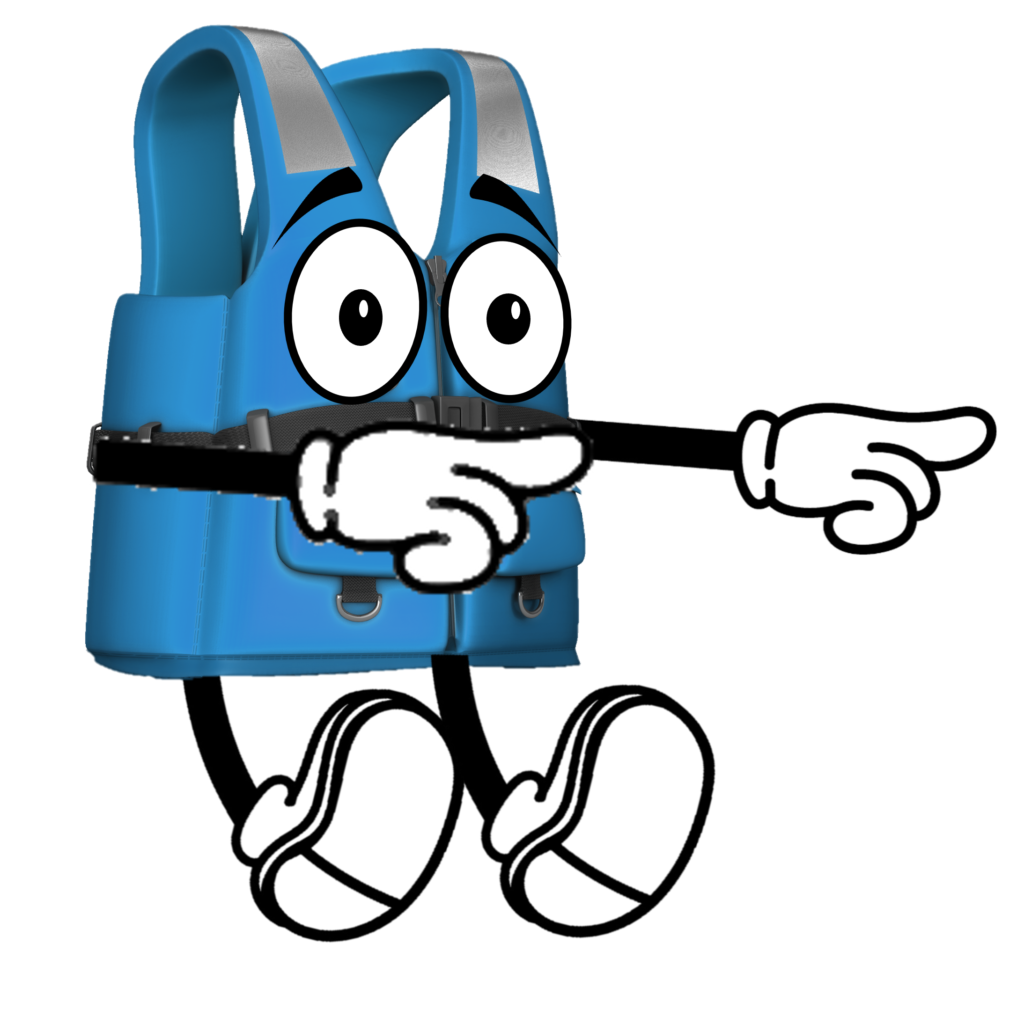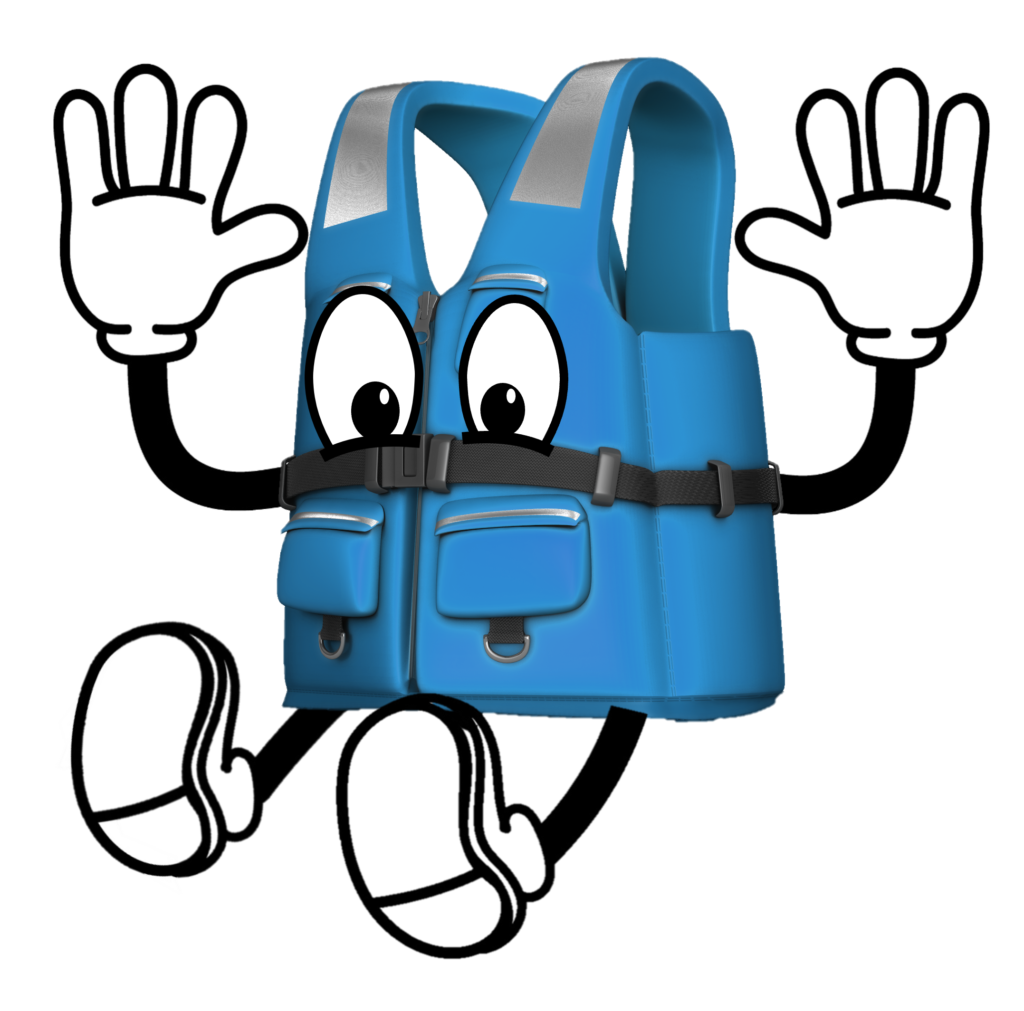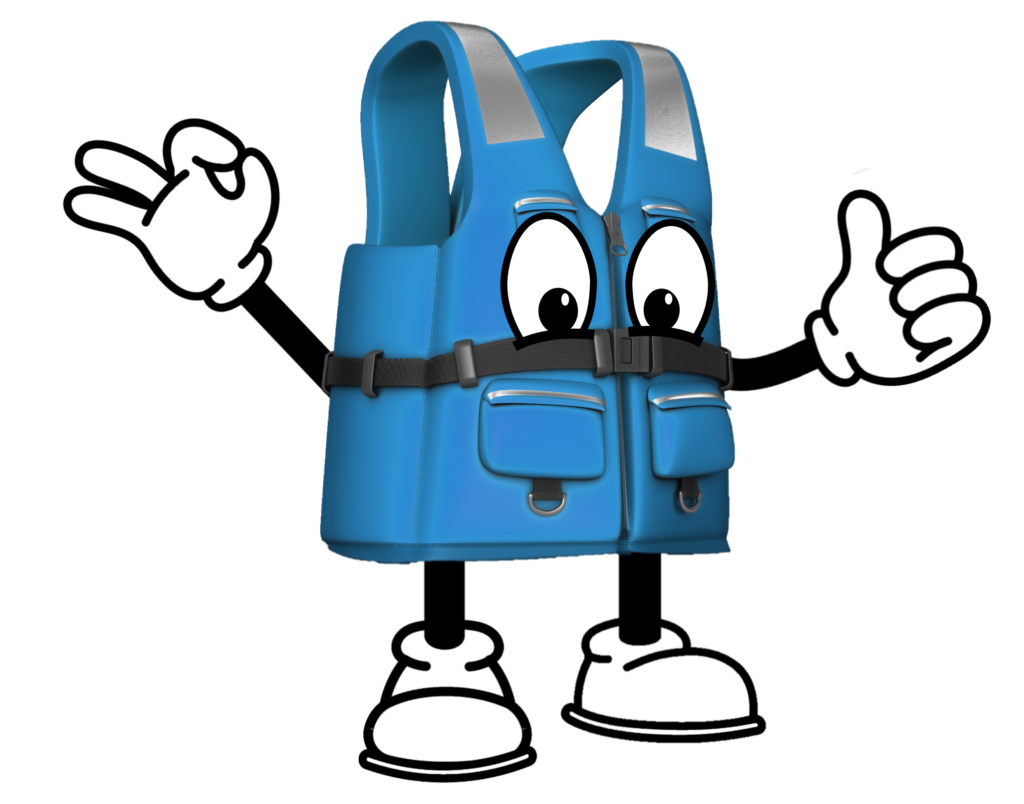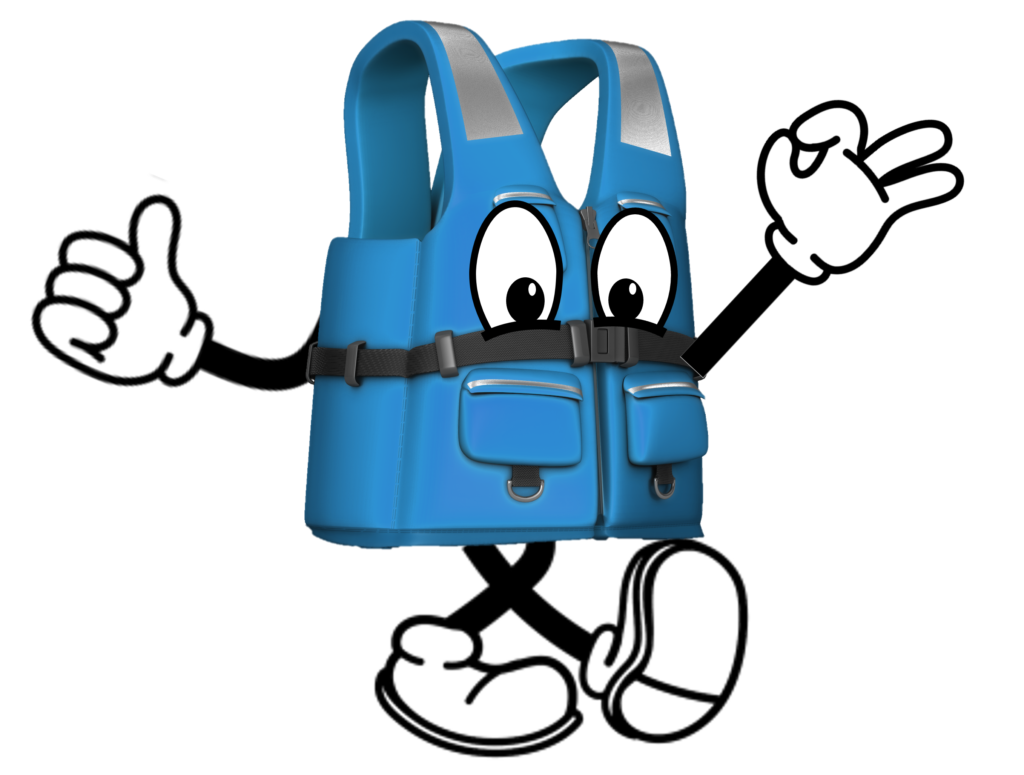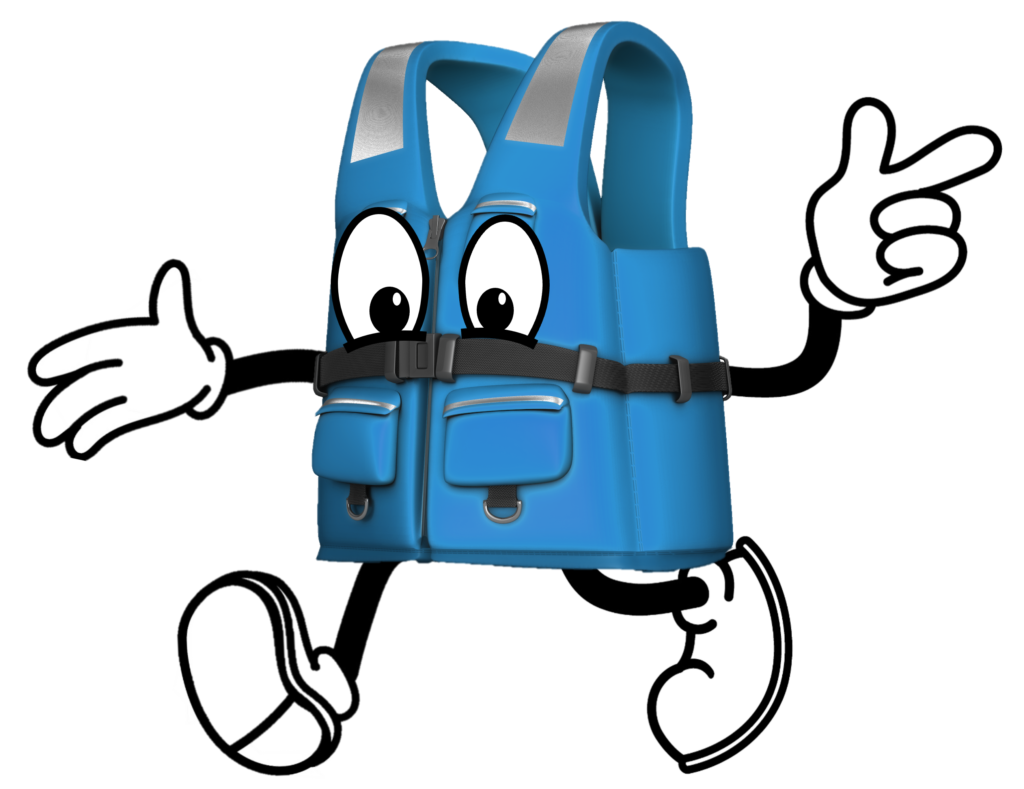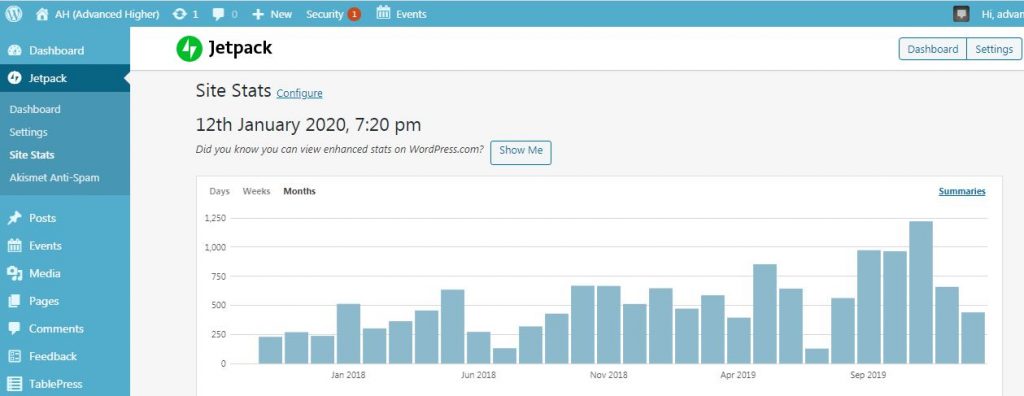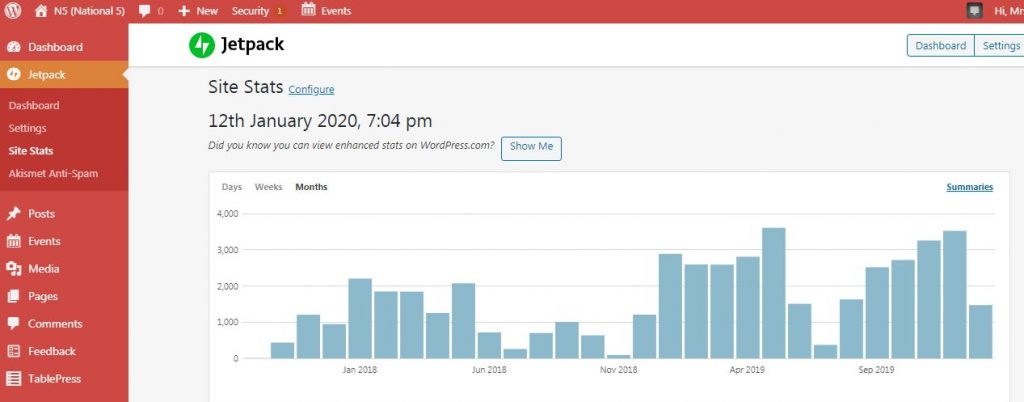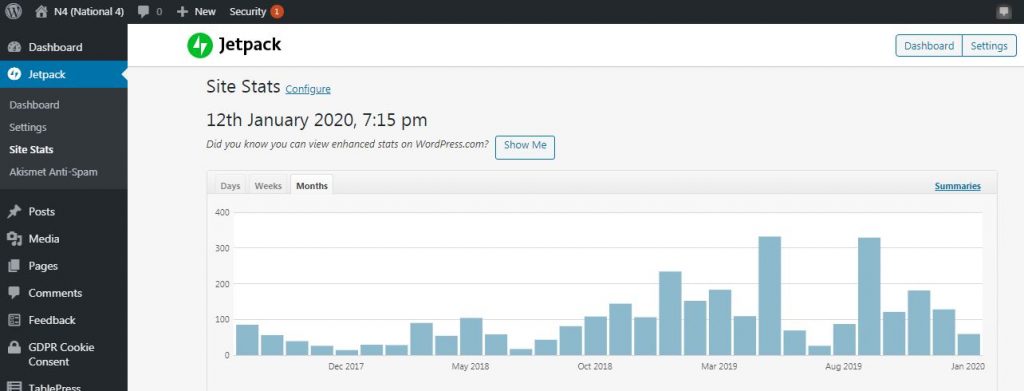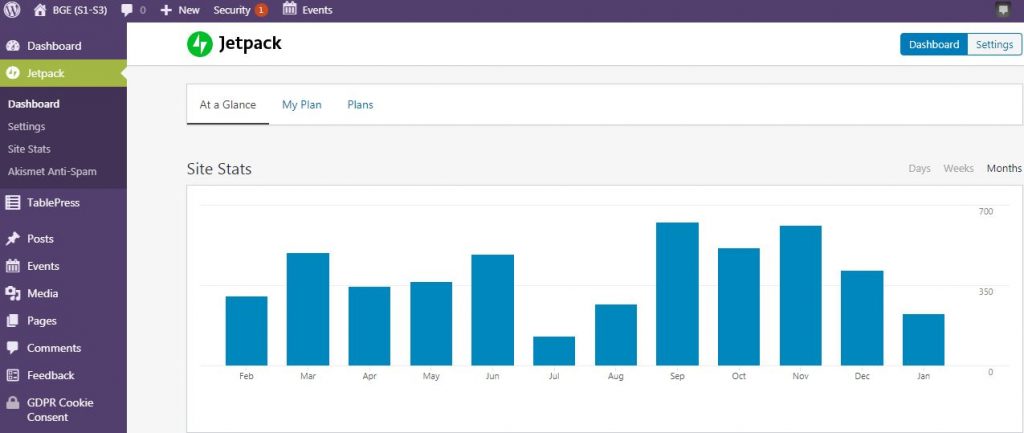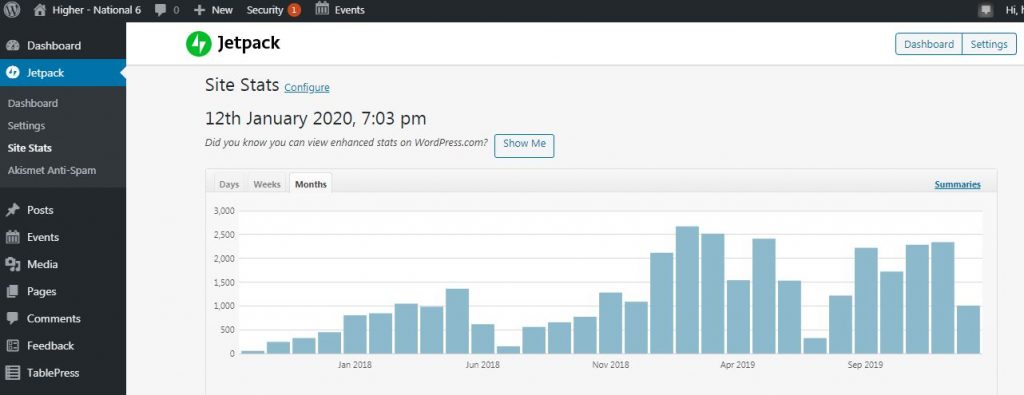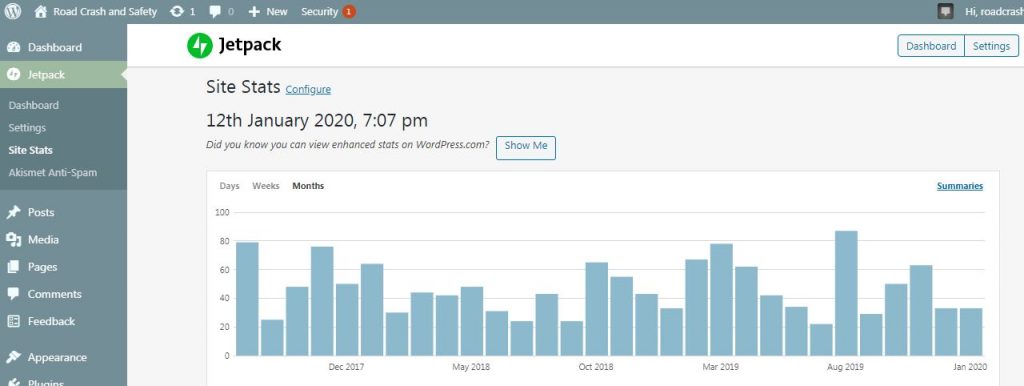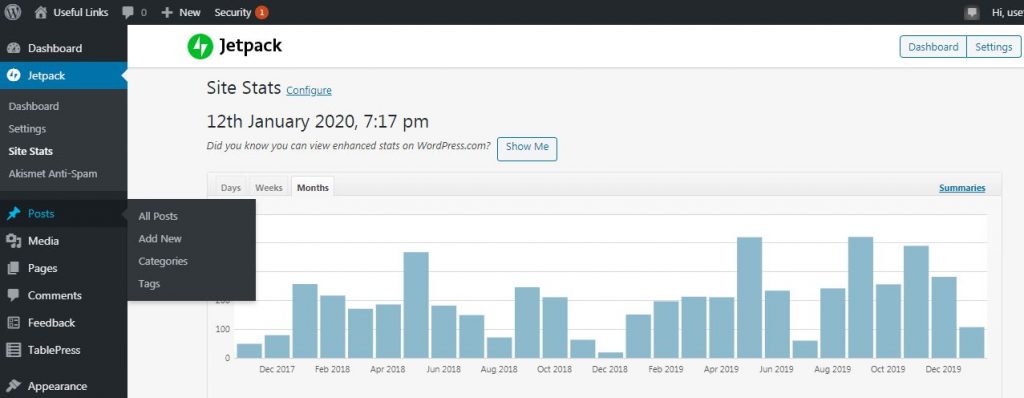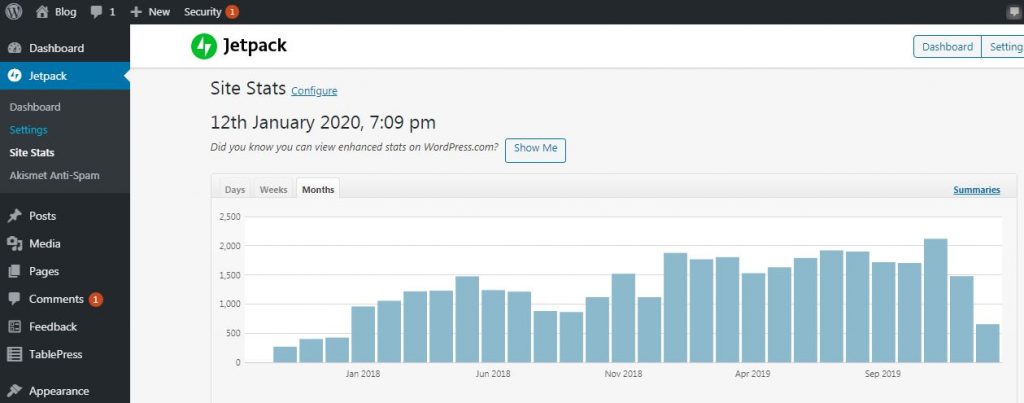I was off for the month of December. I didn’t like being off work but things had just got too much. I hoped to catch up with myself but instead I just sat around with the equivalent of recently cooked pasta in my head.
Thanks to Radio 4, yes some people still listen, I clicked on a link to take an ADHD online test. Now this appears to be the latest trend, and as someone initially sceptical of students claiming ADHD , I wasn’t sure what to expect. However, I didn’t expect it to match me so thoroughly. Check for yourself below. I don’t have substance misuse; never touched a cigarette or taken any drugs other than that prescribed by a Dr and the occasional glass of -OH, but I do use food as a soother! I am also almost never late, including being seven minutes early for my own wedding, but that was something drilled in to my by family.
| 1. Disorganization | Life can seem challenging for everyone sometimes. But someone with ADHD may have more challenging life experiences than someone without ADHD. This can make it difficult for them to keep everything in the right place. |
|---|---|
| An adult with ADHD may have issues with organizational skills. This can include problems keeping track of tasks and trouble prioritizing them in a logical manner. | |
| 2. Relationship concerns | Adults with ADHD can often have trouble in relationships, whether they’re professional, romantic, or platonic. |
| Certain traits associated with ADHD may feel draining on relationships. They include: | |
| · inattentiveness | |
| · being easily bored | |
| · talking over people in conversation | |
| As a result, a person with ADHD may come across as: | |
| · insensitive | |
| · irresponsible | |
| · uncaring | |
| 3. Lack of focus | Lack of focus, the tell-tale symptom of ADHD, goes beyond simply finding it hard to pay attention. It also means: |
| · being easily distracted | |
| · finding it hard to listen to others in a conversation | |
| · overlooking details | |
| · not completing tasks or projects | |
| 4. Restlessness and anxiety | As an adult with ADHD, you may feel like your internal motor won’t shut off. |
| Your yearning to keep moving and doing things can lead to frustration when you can’t do something immediately. This leads to restlessness, which can lead to frustration and anxiety. | |
| Anxiety is a very common symptom of adult ADHD, as the mind tends to replay worrisome events repeatedly. | |
| As with children, physical signs of restlessness and anxiety in adults can include fidgeting. | |
| An adult with ADHD may: | |
| · move around frequently | |
| · tap their hands or feet | |
| · shift in their seat | |
| · find it difficult to sit still | |
| 5. Emotional concerns | Life with ADHD can seem challenging, as though your emotions are constantly in flux. You can easily become bored and have the tendency to seek excitement on a whim. |
| Small frustrations can seem intolerable or bring on depression and shifts in mood. If emotional concerns are left unaddressed, they may complicate your personal and professional relationships. | |
| 6. Hyperfocus | People with ADHD are often easily distracted. They may also have something called hyperfocus, according to a 2019 literature review Trusted Source. |
| A person with ADHD can get so engrossed in something that they can become unaware of anything else around them. | |
| This kind of focus makes it easier to lose track of time and ignore those around you. This can lead to relationship misunderstandings | |
| 7. Time management concerns | This concern is similar to experiencing disorganization. Adults with ADHD often find it hard to effectively manage their time. They may: |
| · procrastinate on tasks | |
| · show up late for events | |
| · ignore assignments they consider boring | |
| They may have trouble focusing on the future or the past — the “now” is often more top-of-mind for people with ADHD. | |
| 8. Forgetfulness | It’s human to forget things occasionally, but for someone with ADHD, forgetfulness tends to occur more often. This can include routinely forgetting where you’ve put something or what important dates you need to keep. |
| Sometimes forgetfulness can be bothersome but not to the point of causing serious disruptions. Other times, it can be serious. | |
| The bottom line is that forgetfulness can affect careers and relationships. | |
| It can easily be confused with carelessness or lack of intelligence by others if they’re not familiar with an ADHD diagnosis and its symptoms. | |
| 9. Impulsivity | Impulsiveness in someone with ADHD can manifest in several ways, including: |
| · interrupting others during conversation | |
| · being socially inappropriate | |
| · rushing through tasks | |
| · acting without much consideration for the consequences | |
| A person’s shopping habits are often a good indication of ADHD. One 2015 study Trusted Source tracked the psychosocial development of random teens in upstate New York over 29 years. The researchers found that impulse buying, especially on items a person can’t afford, was a common symptom of adult ADHD. | |
| 10. Negative self-image | Adults with ADHD are often hypercritical of themselves, which can lead to a negative self-image. |
| This is due in part to difficulties concentrating, as well as other symptoms that may affect school, work, and relationships. | |
| Adults with ADHD may view these difficulties as personal failures or underachievement, which can cause them to see themselves in a negative light. | |
| 11. Lack of motivation | While you might be open to doing everything at once, you also may feel unmotivated. |
| This concern is commonly seen in children with ADHD, who often find it hard to focus on schoolwork. It can also happen with adults. | |
| Coupled with procrastination and difficulty with organizational skills, lack of motivation can make it hard for an adult with ADHD to finish a project. They may find it hard to focus for long periods of time. | |
| 12. Fatigue | Although this may sound surprising given that restlessness is also a symptom, fatigue is a concern for many adults with ADHD. |
| There could be several reasons for this, including: | |
| · hyperactivity | |
| · sleep problems that can come with ADHD | |
| · the constant effort to focus that ADHD may require of you | |
| · side effects of ADHD medications | |
| Whatever the cause, fatigue can worsen attention difficulties. | |
| 13. Physical health concerns | ADHD can lead a person to neglect their physical health. ADHD symptoms that may affect your ability to maintain your physical health include: |
| · disorganization | |
| · emotional concerns | |
| · impulsivity | |
| · lack of motivation | |
| · Stress and anxiety also have negative effects on your physical health. | |
| Neglecting your physical health can manifest as: | |
| · compulsively eating an imbalanced diet | |
| · not exercising | |
| · forgoing important medication | |
| 14. Substance misuse | Substance misuse may not affect every adult with ADHD, but a 2021 consensus statement showed that people with the condition are more likely than others to experience substance misuse. This may involve the use of alcohol, tobacco, or other drugs. |
| The research isn’t clear on what the link is between substance misuse and ADHD. One theory is that people with ADHD use substances to self-medicate. They may misuse these substances in hopes of: | |
| · improving focus | |
| · improving sleep | |
| · relieving anxiety |
So where has this left me?
I feel quite liberated that many of those traits that I hate in myself can be discovered to be part of this. It explains why I can’t sit through meetings without my mind wandering and why I always take copious notes to try to keep me focused and following the thread, and it explains why I don’t really remember much in the past. It explains why I but in and finish people’s sentences, and if I’ve ever done that to you I apologise now. For me, everything is clearer.
I now understand why I’ve never given a good interview in my life and why, despite hours of planning I throw it away in impulsive comments. I know I wouldn’t give myself a job based on how I perform in an interview, but maybe now people will consider other things I’ve done. From being plaqued by my lack of success in moving up the greasy pole of promotion I understand that the real problem wasn’t my lack of ability to do the job, but the lack of adaptation in the interview process to see the best in a large group of the population. I am not making excuses you understand, but it allows me to free myself from the self-hatred of thinking that I am pretty useless at most things.
There have been some amazing benefits of this too.
Suddenly I can identify symptoms in others, as clearly as holding a mirror up and viewing myself.
I don’t think I would have achieved so many interesting things in my teaching career but for the rapid boredom of the mundane
The GP says I don’t meet the threshold for a diagnosis on the NHS so I will ponder what it means. However, with OH giving me ticks for all symptoms except crossing out dangerous driving for careless driving, and a GP friend saying he’d known about this for years; I can now start explaining so much about myself. It is as if a cloud had lifted and what is left behind is a beautiful clear view for miles around.
If you want to keep posted of what happens in my journey I think you can subscribe to mrsphysics.
I would say suddenly the pasta head felt like it had been rinsed and was so much lighter. I’ll try to get an image of what I mean.
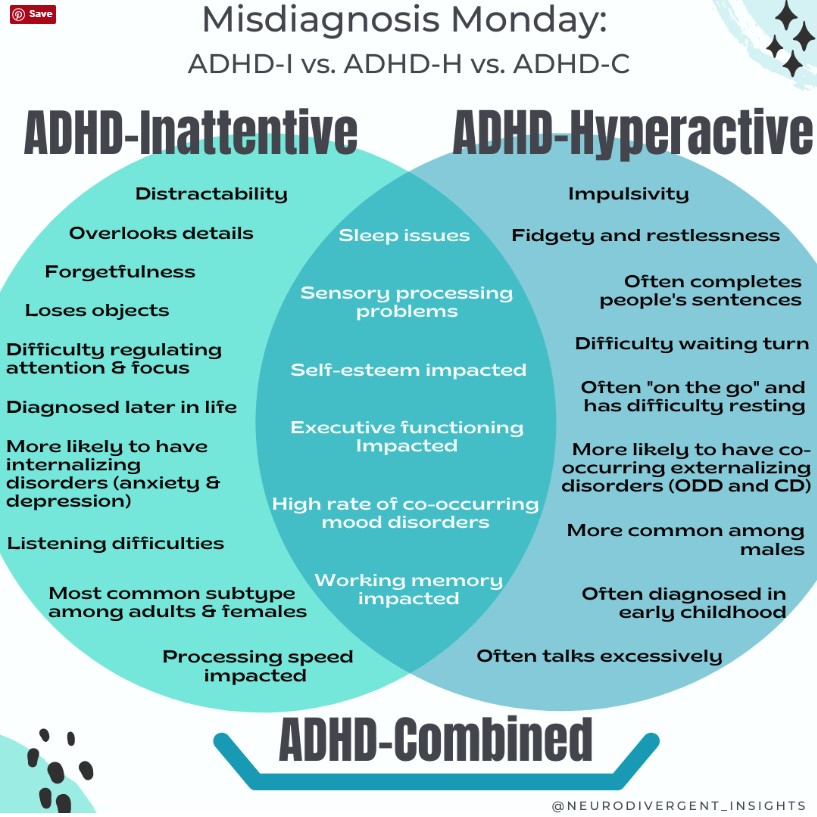
https://neurodivergentinsights.com/misdiagnosis-monday/adhd-vs-adhd
